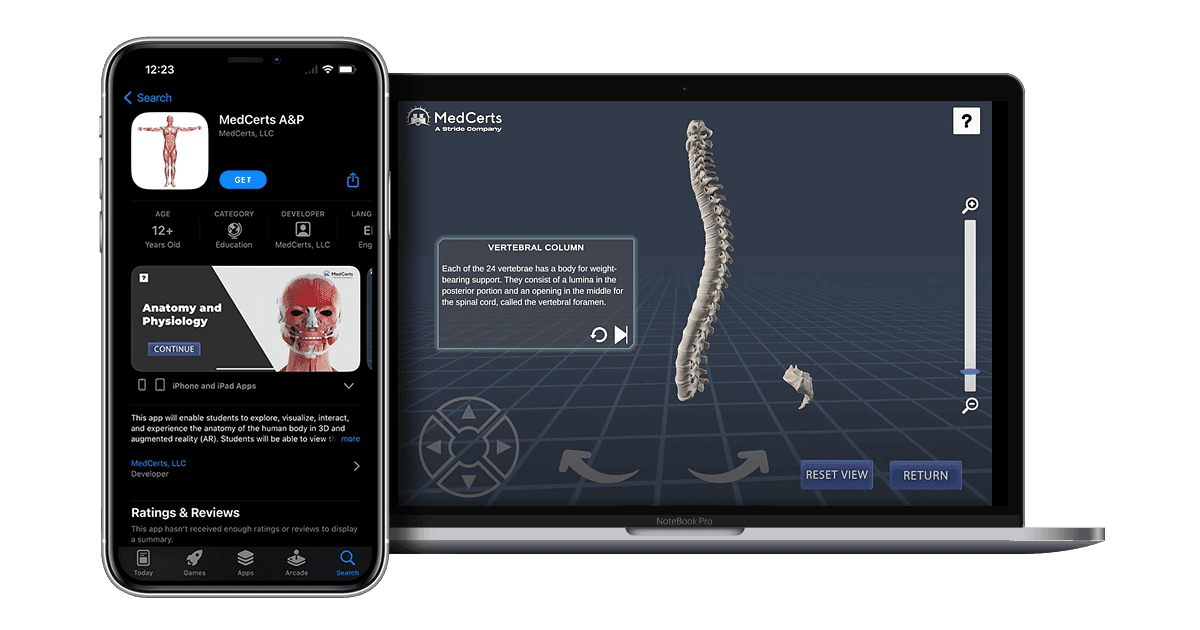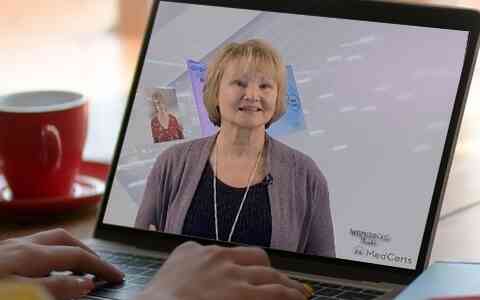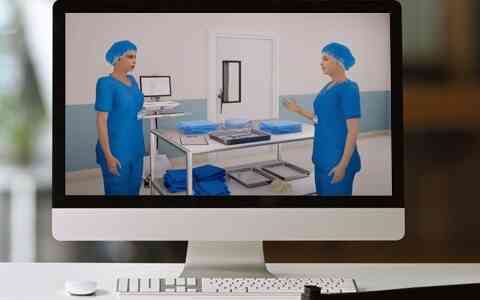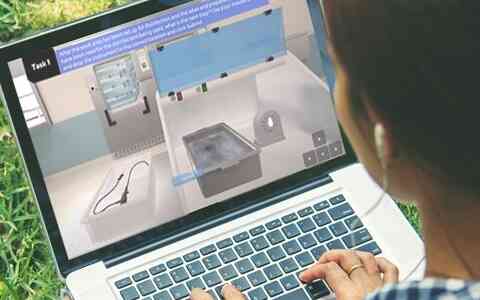How MedCerts is using Generative AI to make online learning even more realistic!
We’ve been in the online learning game since 2009, so we’re no strangers to technology in education. We’re constantly evaluating and evolving our certification training programs with the latest in eLearning capabilities, like generative AI.
Learn How You Can Utilize Our Cutting Edge eLearning
By submitting this form, you are also agreeing to receive marketing communications in the form of text, email and phone call.
Enhanced eLearning through Instructional Technology
MedCerts’ interactive, immersive teaching creates a better online learning experience for students. We’ve developed an anatomy and physiology course incorporating the best instructional technologies to improve knowledge retention, increase attention span, and create the ultimate learning environment. With over 50 simulations, augmented reality, 3D demonstrations, and a companion app for mobile devices, our A&P course is peak online learning.


Online Learning from Instructors

Virtual, Immersive Environments
How do we ensure maximum effectiveness in teaching? Immersive Learning. This offers a distraction-free online experience where you aren’t just observing but an active participant. Our team of developers, instructors, designers, 3D artists, programmers, and instructional designers use technology to form a complete immersive ecosystem.

Interactive Skills Activities
Take control of the tool, devices, and objects of your trade in a guided, prompted, and process-oriented manner completely virtually. Interactive activities allow you to learn real tasks and practice hands-on, clinical skills repeatedly and safely – building familiarity and comfort.
MedCerts 12 Elements of eLearning
No one does online learning like MedCerts. Our Instructional Design technology provides a platform for concepts and skills to be explored, experienced, practiced, and understood so thoroughly that they can be successfully reproduced and applied in actual, real-world scenarios. We utilize 12 Elements of eLearning, developed using David E. Merrill’s principles of Instructional Design, to provide a well-rounded, diverse experience for every type of learner.
Instructor-Led Videos
Instructors present content with visual elements like 3D graphics, animations, and text
3D Animated Demonstrations
Understand complex tasks by learning through observation and investigation
Scenario-Based Learning
AI-enabled virtual humans help create a safe, engaging experience and promote meaningful behavioral changes like empathy
Screen-Based Simulations (SBSs)
Kinesthetic learners are free to manipulate tools, devices, and equipment in a guided, prompted and process-oriented manner
Augmented Reality
Computer-generated objects within real-world environments as viewed through a camera lens immerses the learner to inspire interactivity.
Industry Insights
Real-world professionals provide anecdotes and “day-in-the-life” wisdom.
Simulated Software Application
Vendor-leveraged software provides practice, demonstration and application of real-world processes, tasks and functions
Task-Based Demonstration
View accurate, real-world presentations of tasks, processes and skills recorded using actual practitioners
Game-Based Learning
Gamification is proven to target a specific skill while engaging learners and enhancing knowledge retention
Physical & Virtual Courseware
Courseware is comprised of MedCerts (or vendor-published) textbooks, eBooks, or PDFs utilized as resources
Performance-Based Exam Prep
Integrates exam prep in a course to align with actual certification objectives and the certification body.
Standardized Assessments
Periodic assessments – quizzes, mid-terms, and final exams – require learners to apply knowledge gained, demonstrate competency


